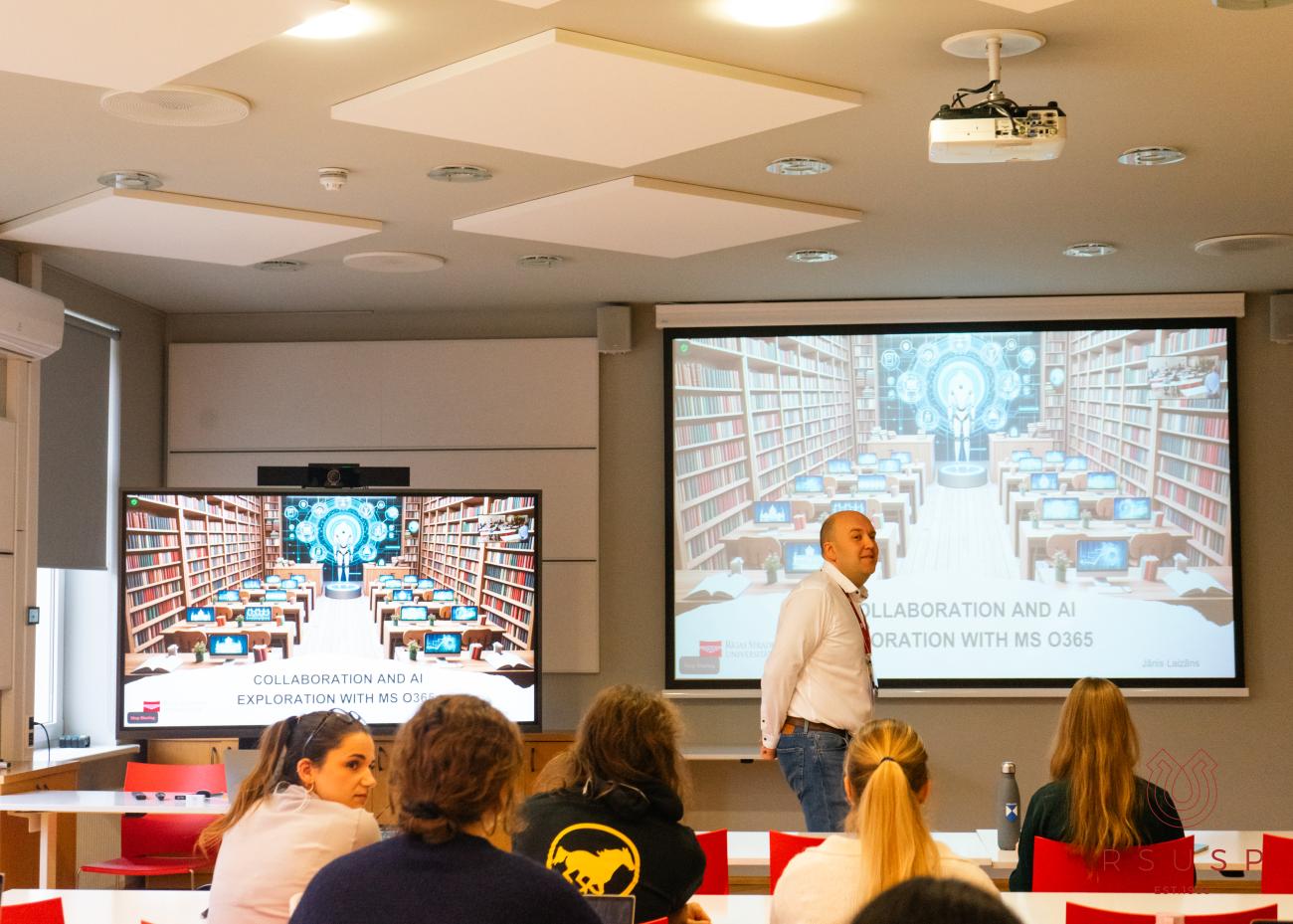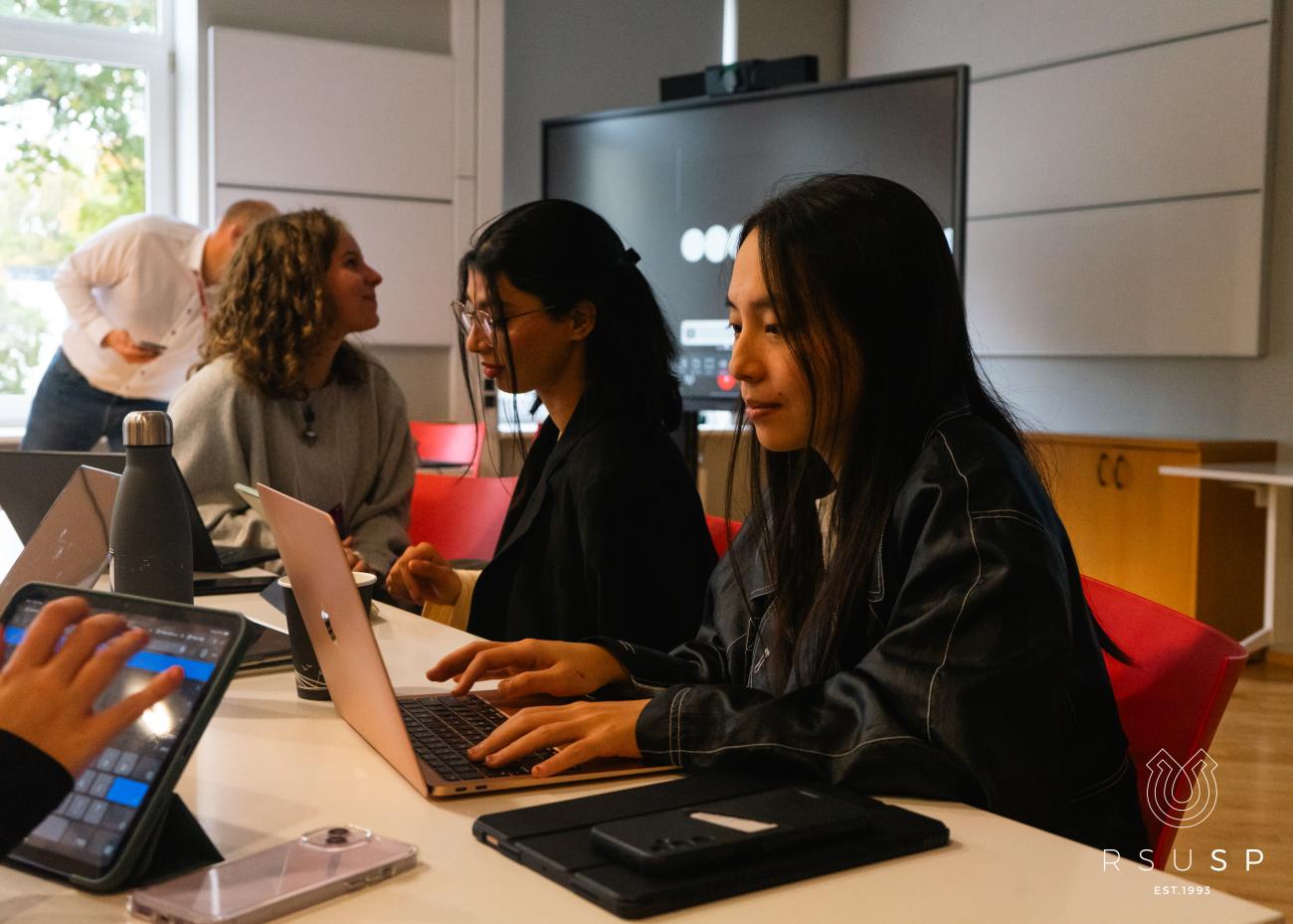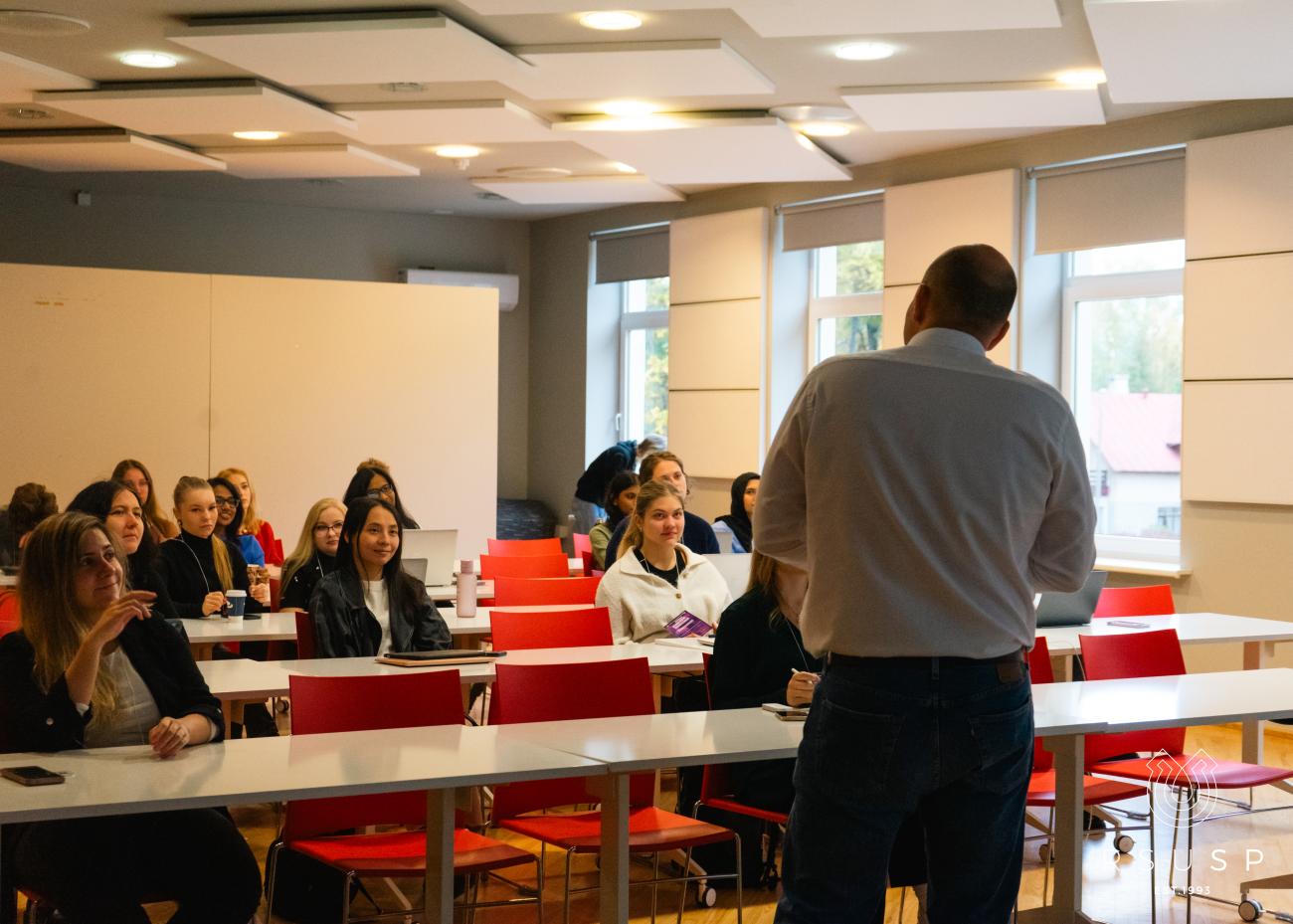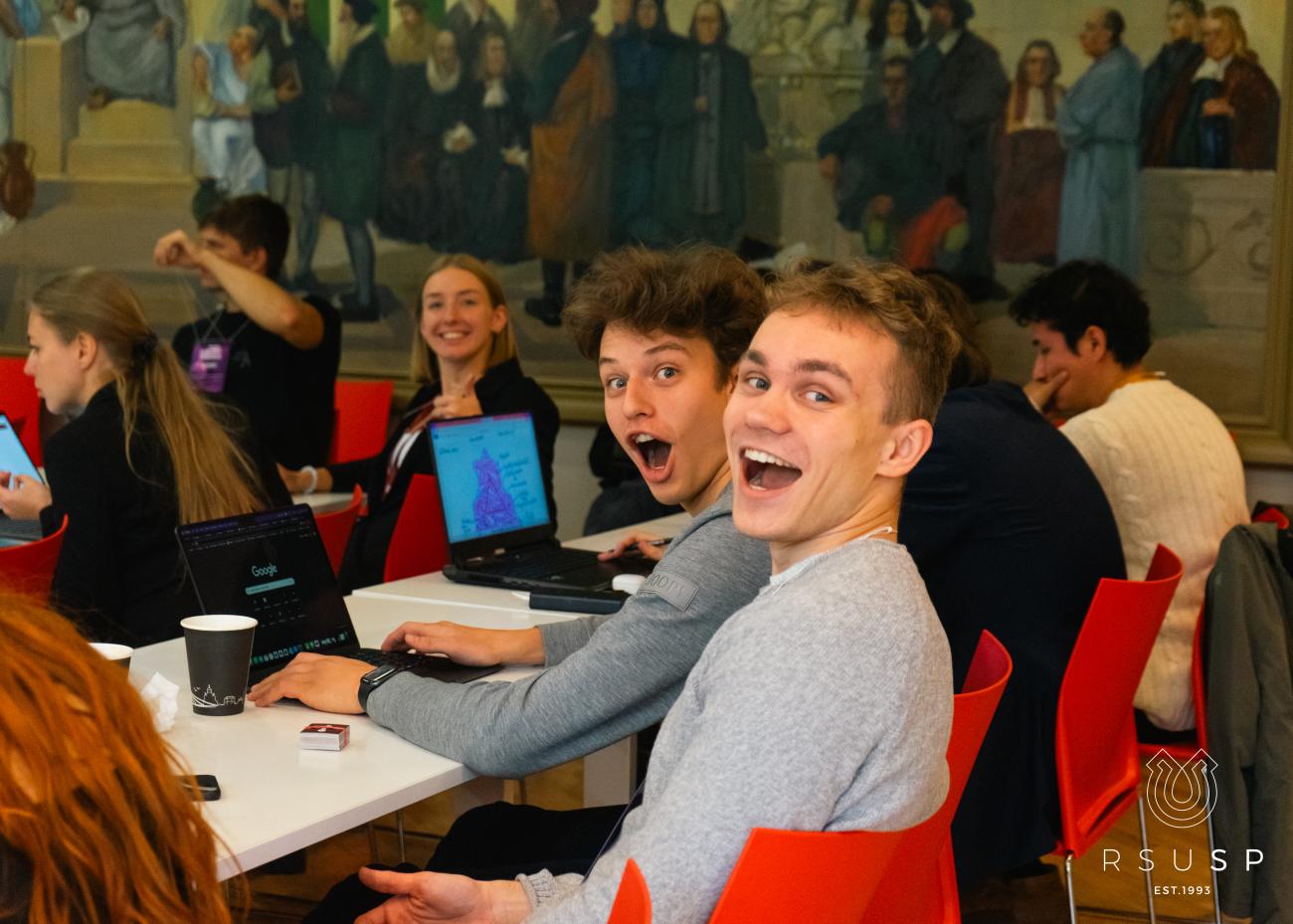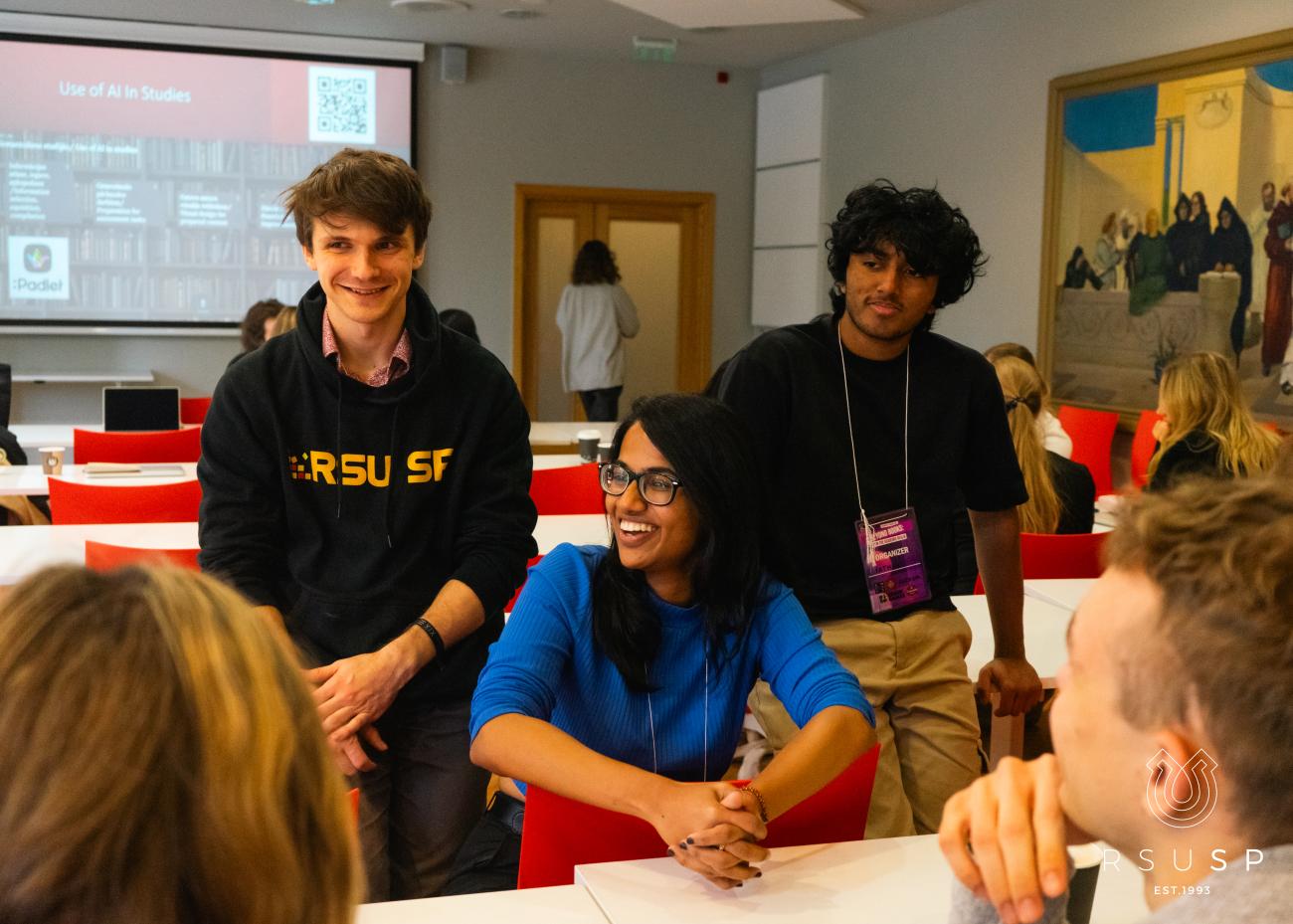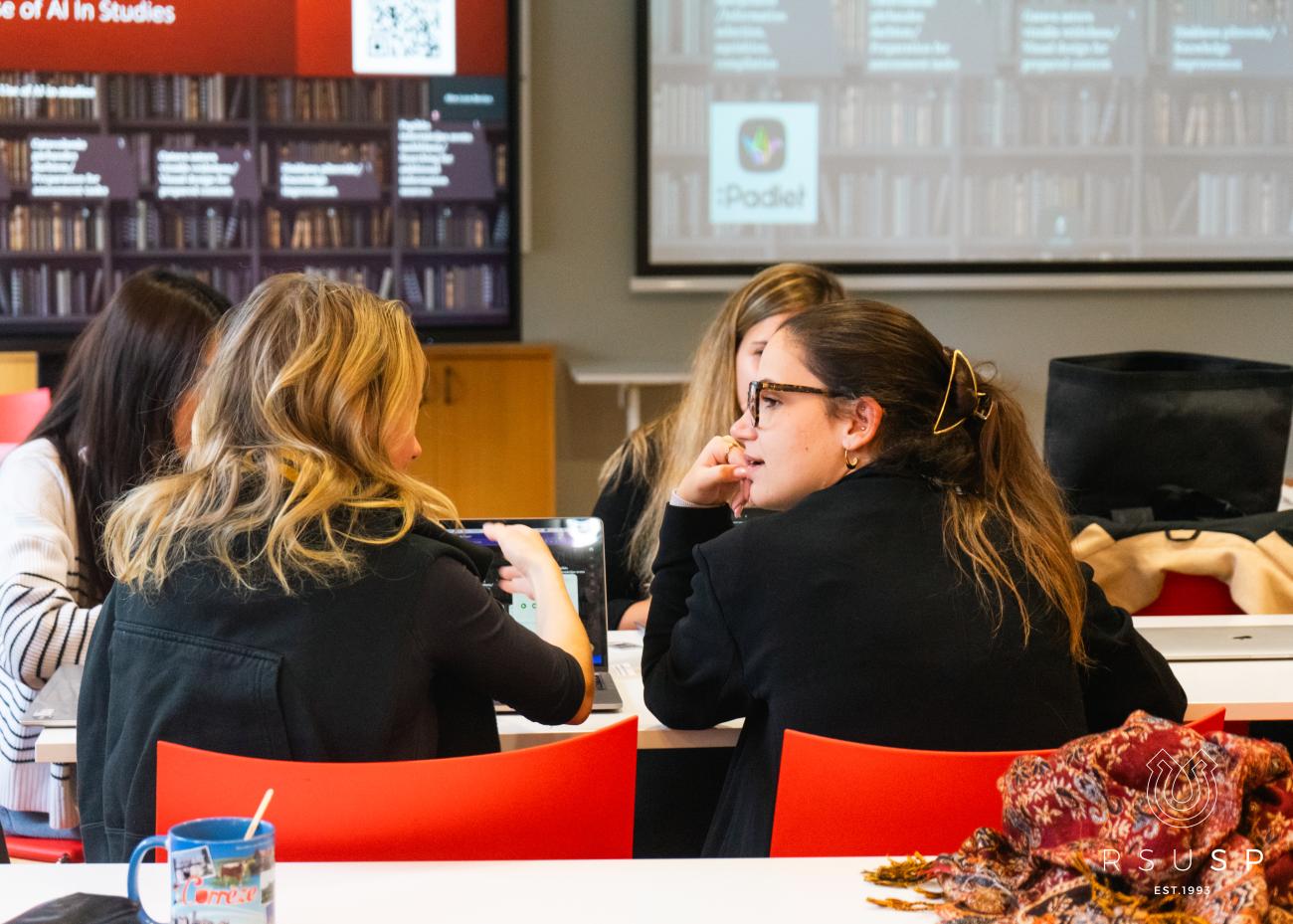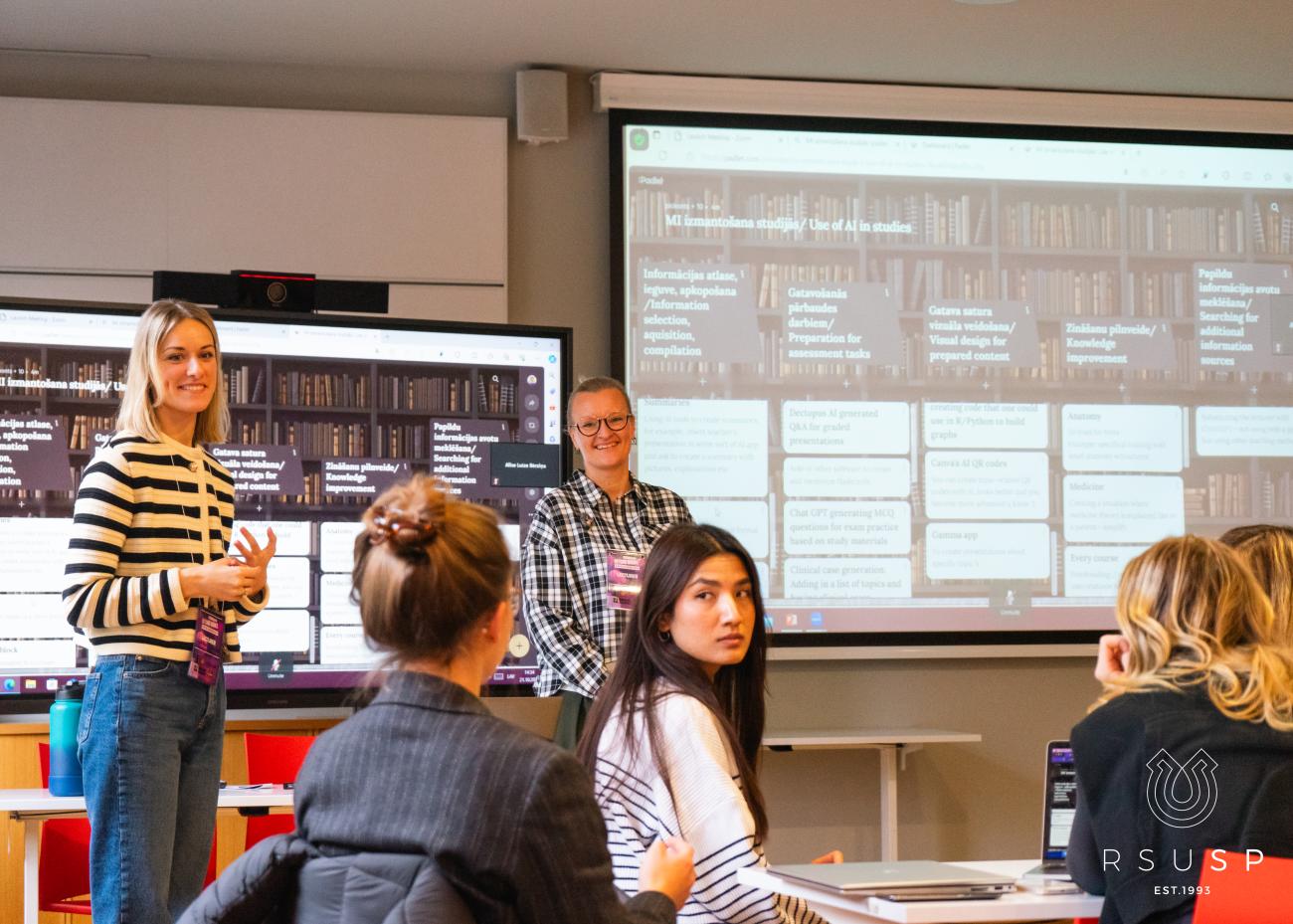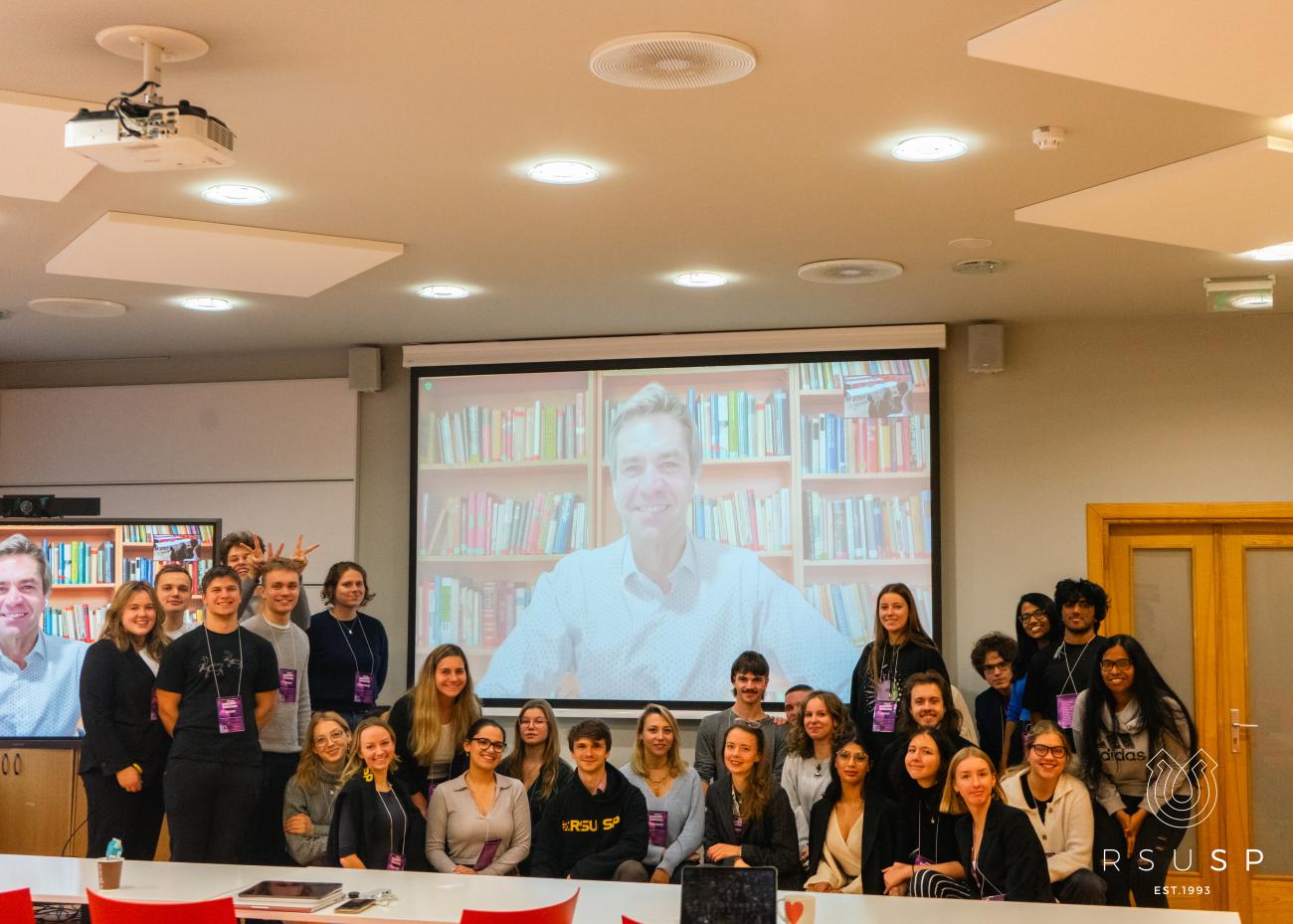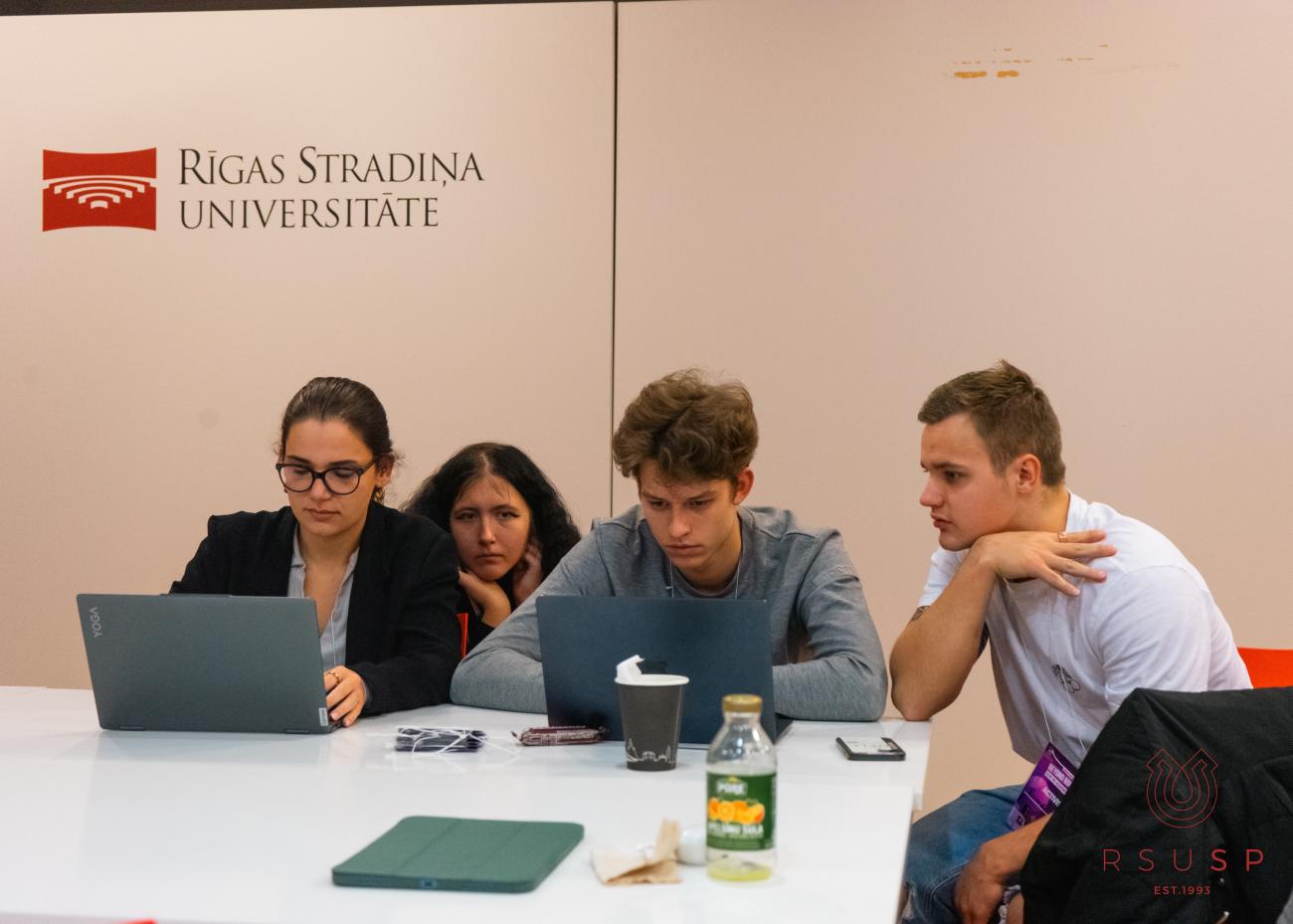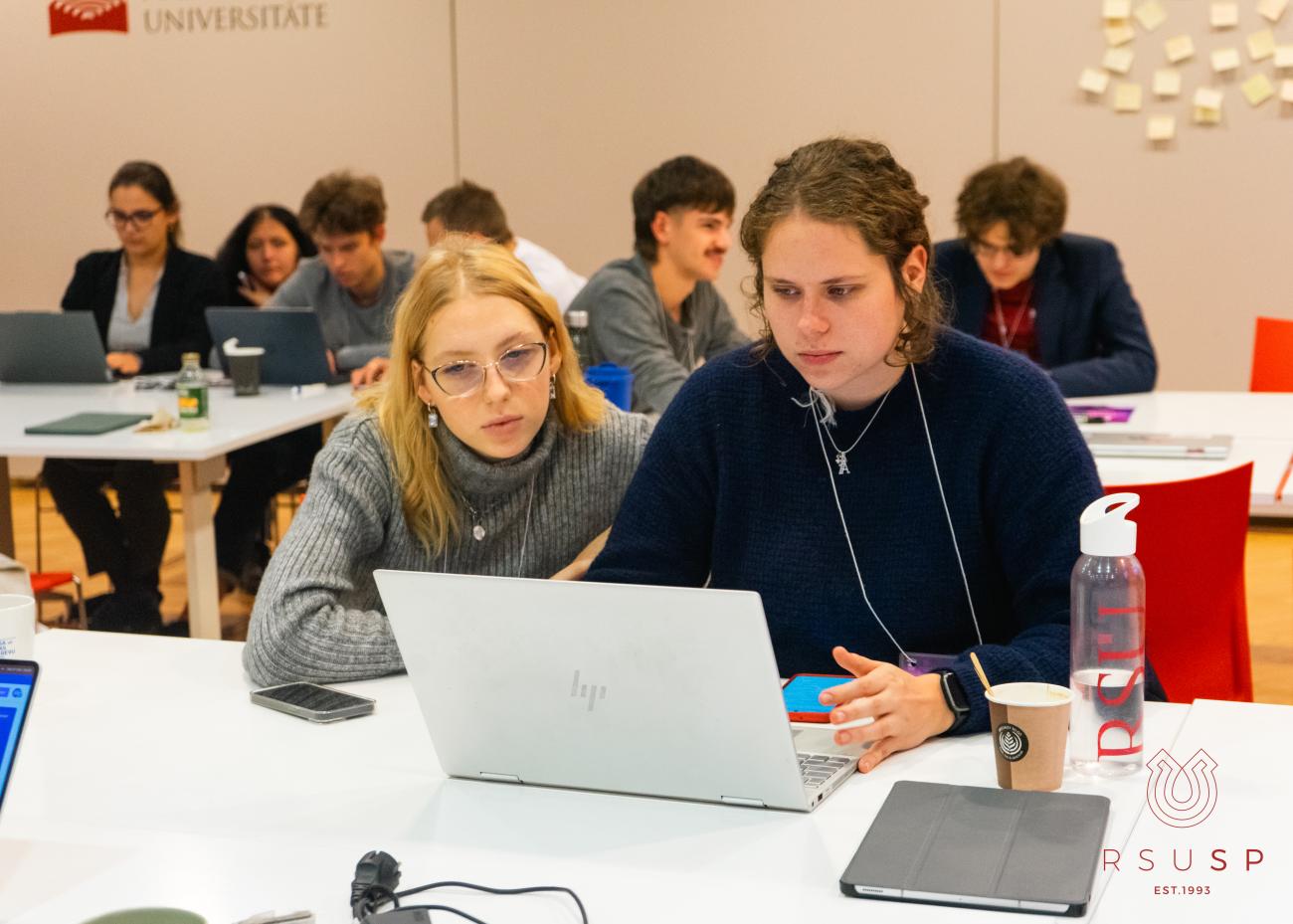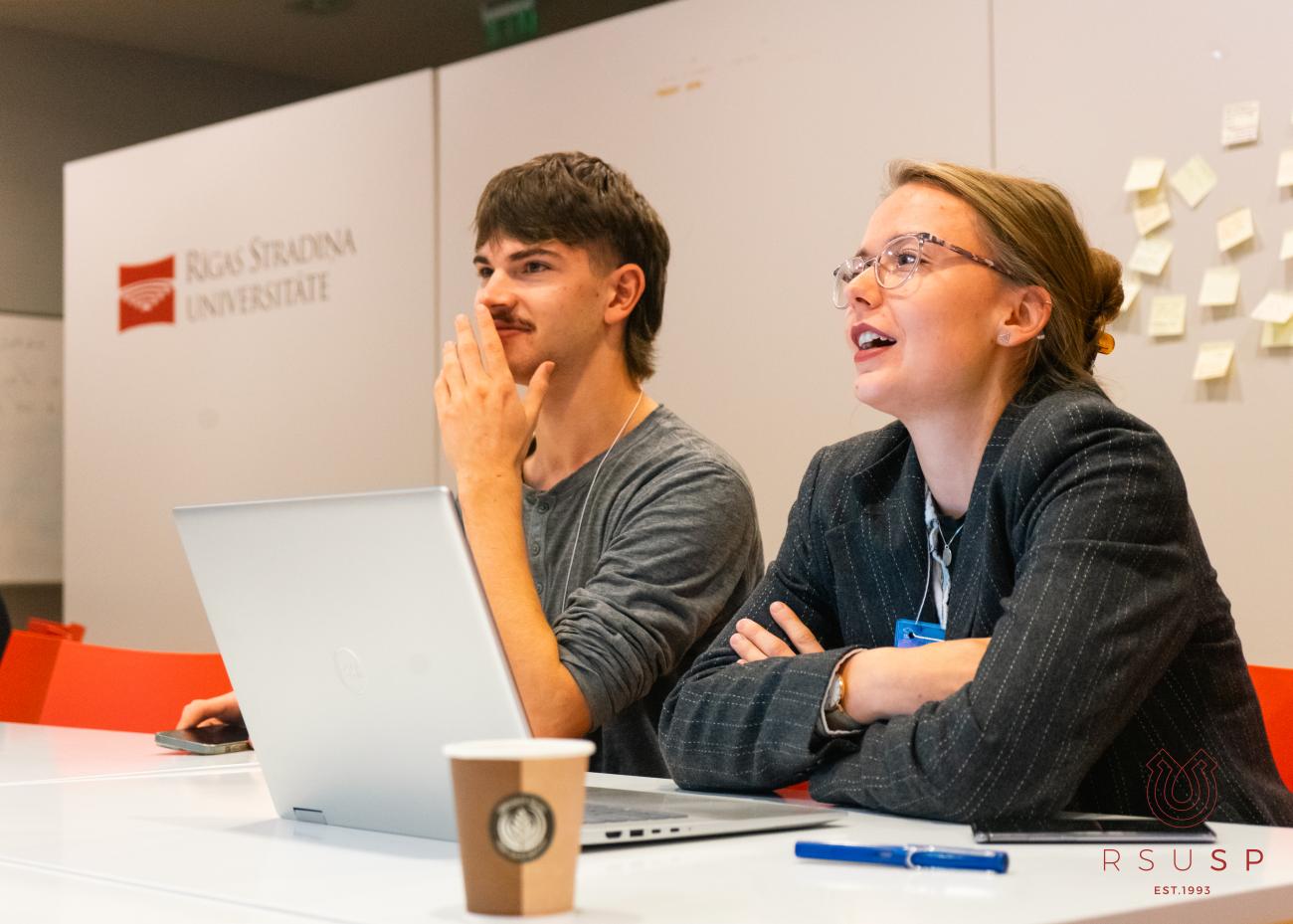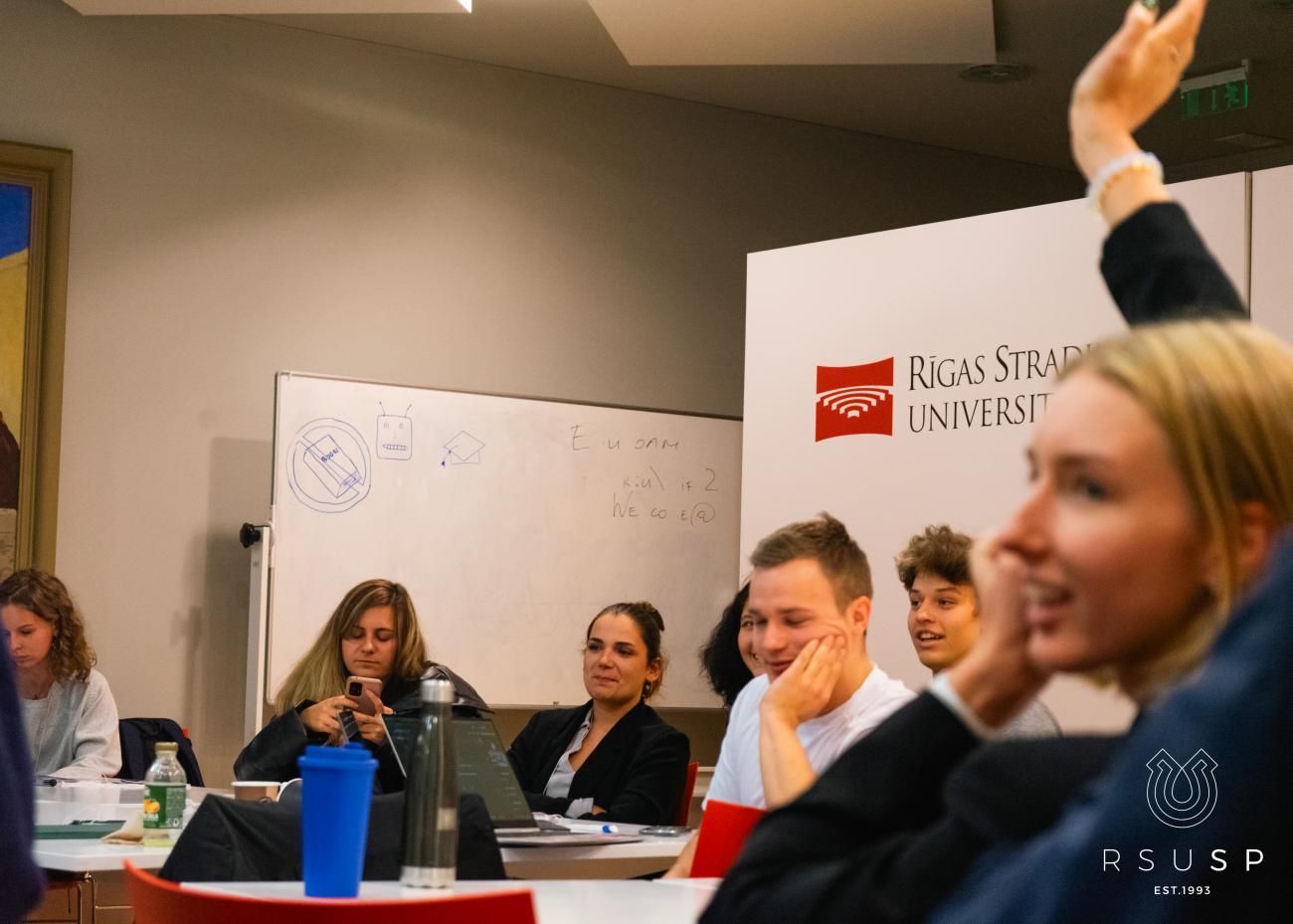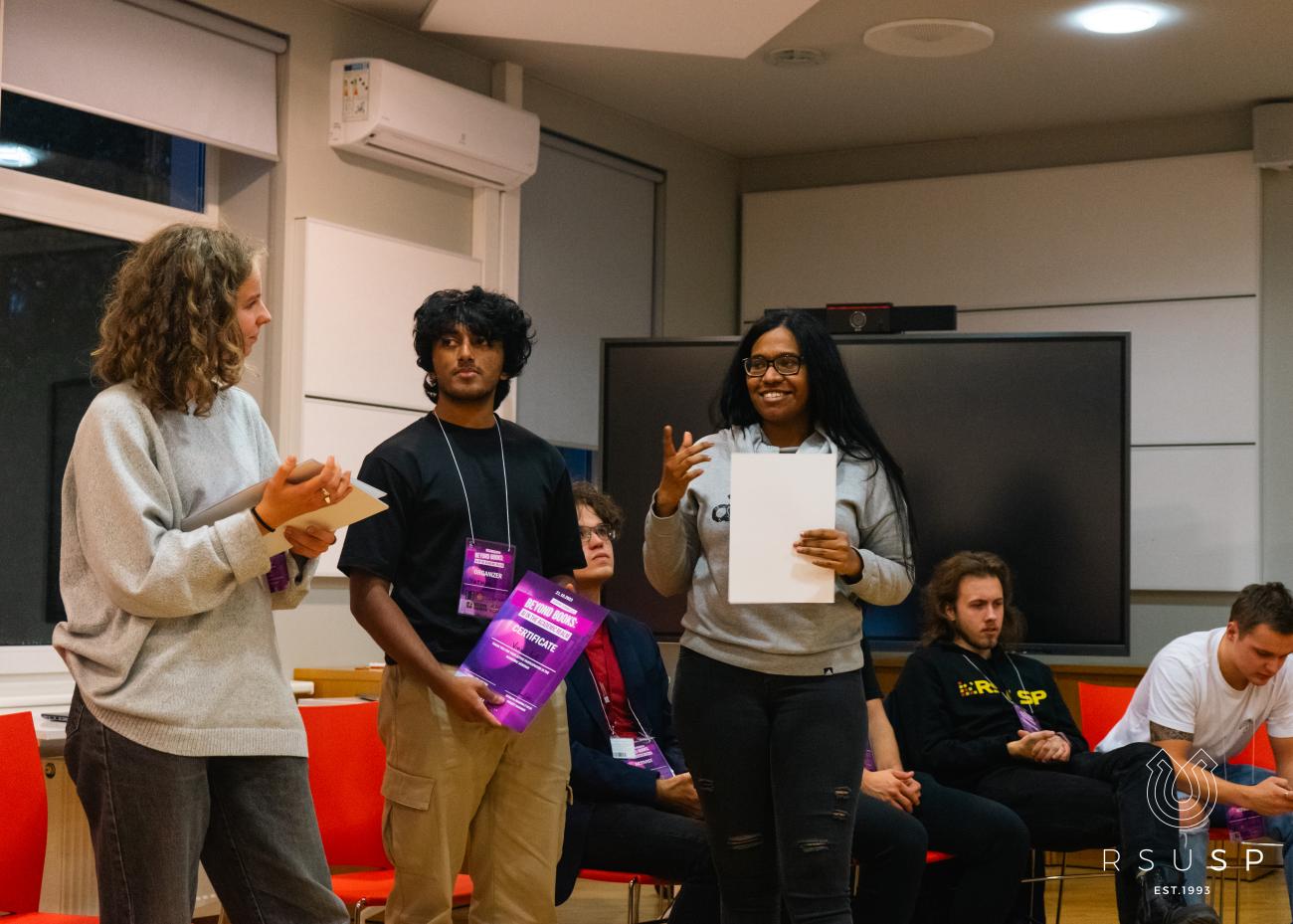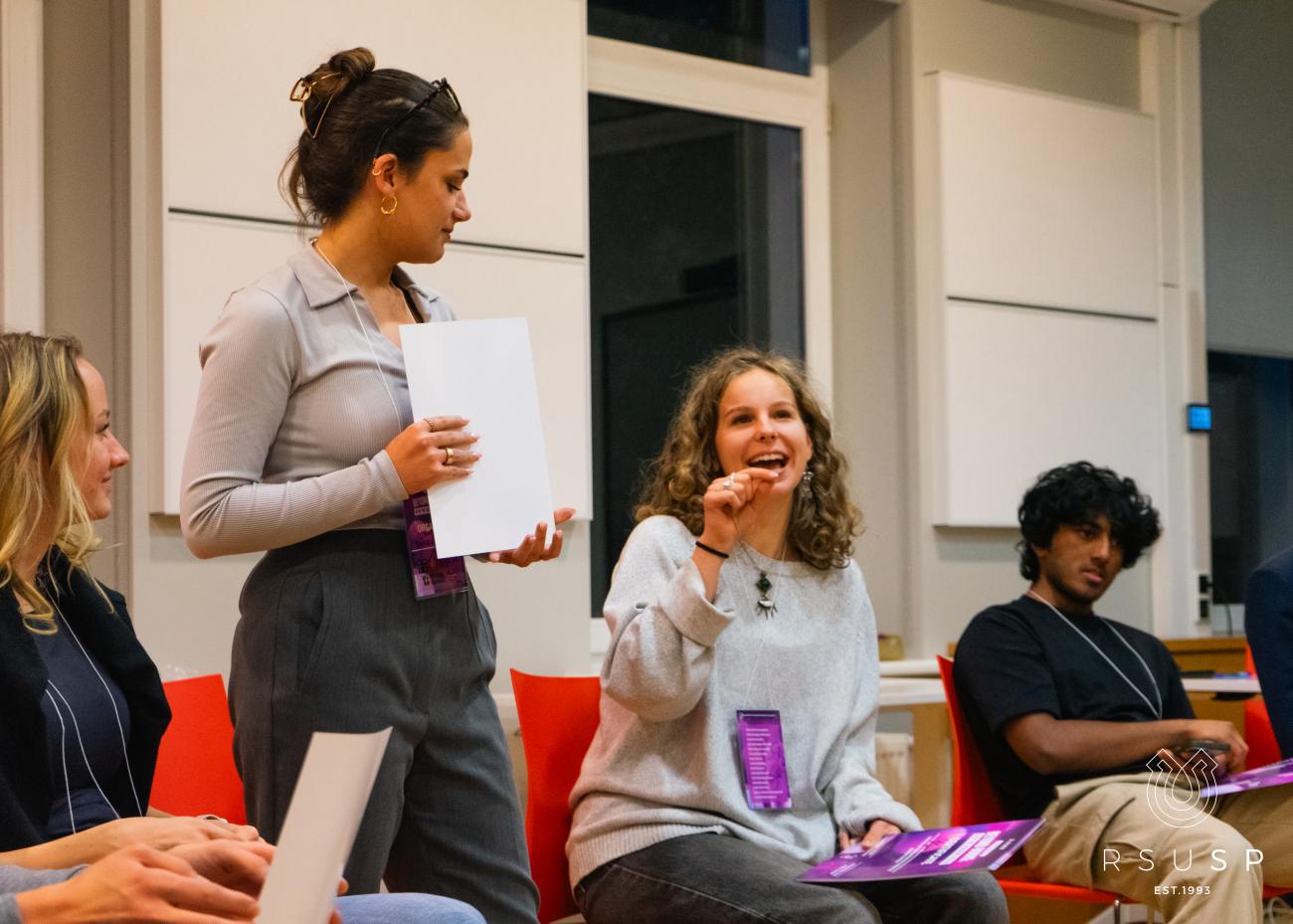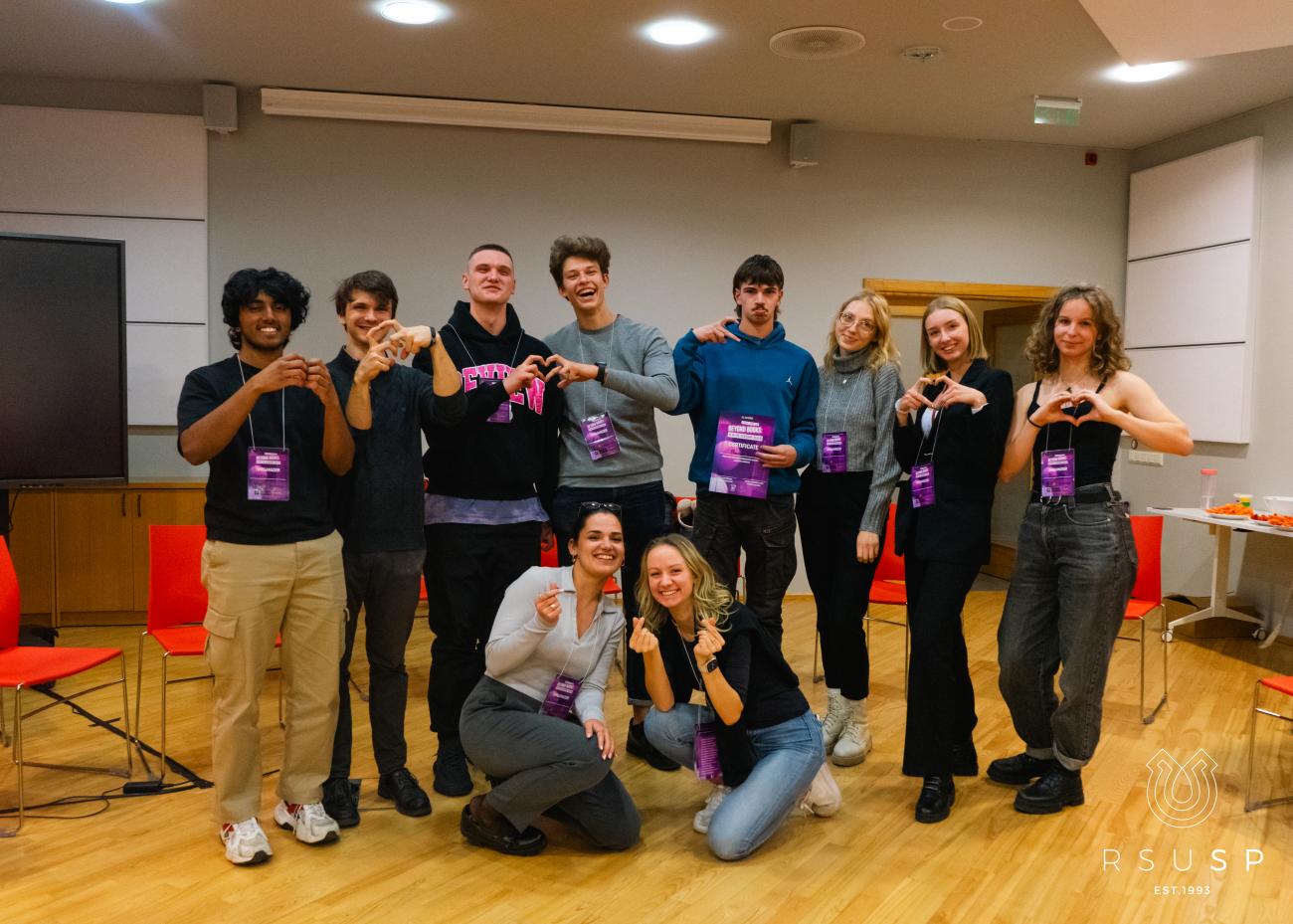RSU students harness the power of AI in learning
On Saturday 21 October, Rīga Stradiņš University (RSU) students eagerly gathered for the highly anticipated annual Academic Seminar. This year's seminar was titled "Beyond Books: AI in the Academic Realm." Typically, the RSU Student Union (SP) takes the helm in organising Academic Seminar events. However, in a bid to extend its reach, this year's event was a collaborative effort, co-organised with the International Student Association (ISA) and was conducted in English.
The goal of the event was to bring RSU students together to engage in meaningful discussions on topics relevant to their academic pursuits and possibly their future careers. The organisers wanted to stress that artificial intelligence (AI) is not something futuristic, but rather show the ways in which it is already being put to good use in academia.
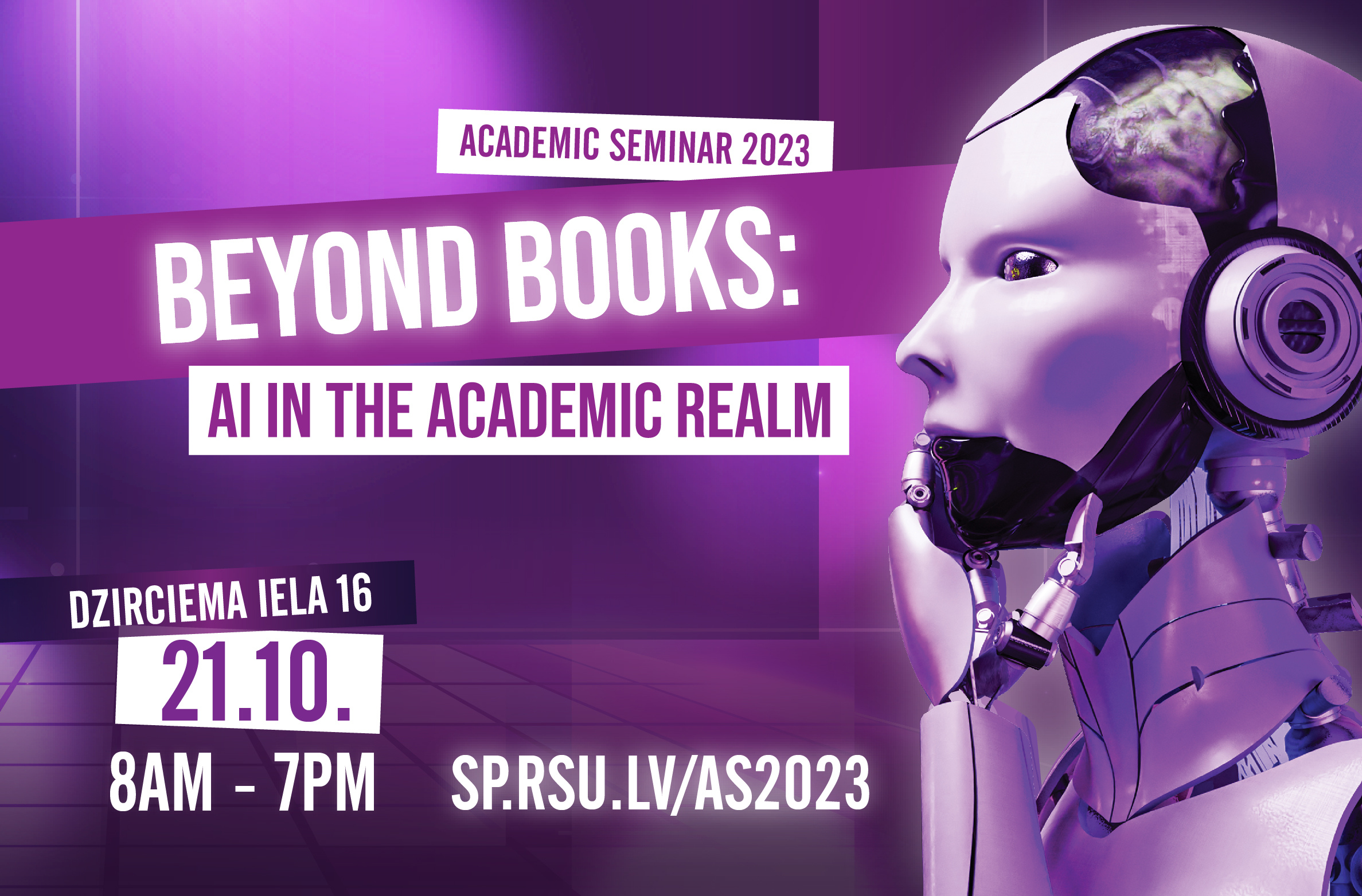
Fun fact: The name of the event, the posters, and even the lecture topics were created using AI
The first lecture by Head of the RSU IT Service Centre Jānis Laizāns, was titled “Collaboration and AI Exploration with MS 0365”. Laizāns skilfully mixed informative content with an engaging, friendly demeanour that elicited genuine laughter from the participants. During the lecture, he covered ethical questions concerning the use of AI to come up with topics for research, structure presentations, improve written assignments, and check work for plagiarism. Furthermore, Laizāns informed students about the free programmes and tools available at RSU and showed students how to use them. These include document collaboration tools and different functions of Microsoft, like MS Teams and OneDrive.

The next workshop was titled "The Power of AI as Your Study Copilot," and was led by assoc. prof. Nora Jansone-Ratinika, Katrīna Elizabete Puriņa-Biezā, Raimonds Strods, all from the the RSU Centre for Educational Growth, and Līga Ozoliņa, tutor and Vice-Dean of the RSU Faculty of Communications. Colleagues form the Centre for Educational Growth provided a comprehensive exploration of the ethical and unethical applications of AI in studies and learning. The participants gained valuable insights into how students can employ AI as a complementary tool to enhance their knowledge rather than plagiarise or write essays in their place. The workshop also shed light on how university staff can use AI in their work, including generating exam questions and summarising study materials.
A key point that the workshop leaders made was the need to evaluate the veracity of the information generated by AI, underscoring the importance of being able to discern reliable sources and information.
The lecture of the day was held by Agnis Stibe, visiting tutor from Vietnam and a four-time TEDx participant. In his lecture, Stibe spoke about the ethics of human artificial intelligence and outlined how information sharing has developed and evolved over time. In conclusion, he stressed the importance of understanding the different contexts in which AI can be used and whether its use is appropriate –
AI should not be used without human judgment!
In different group activities throughout the day, students were split into groups and tasked to use AI in different ways, discuss their results, and brainstorm about how AI can be utilised to improve the study process.
Overall, students appreciated the opportunity to learn more about the different uses of AI, and the ability to discuss topics that are prevalent in the media and see how these tools can be applied to their work in a practical way.
Related news
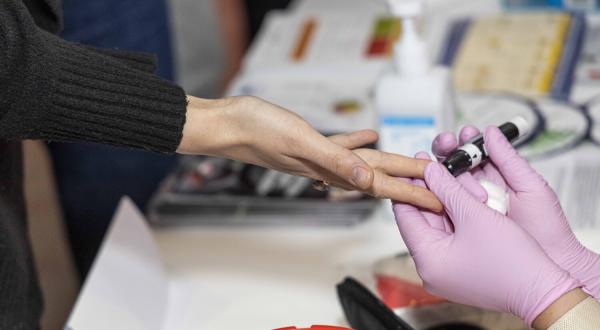 RSU Health Day attracts many first-time donors and large number of student research groupsFor RSU Employees, For Students
RSU Health Day attracts many first-time donors and large number of student research groupsFor RSU Employees, For Students
